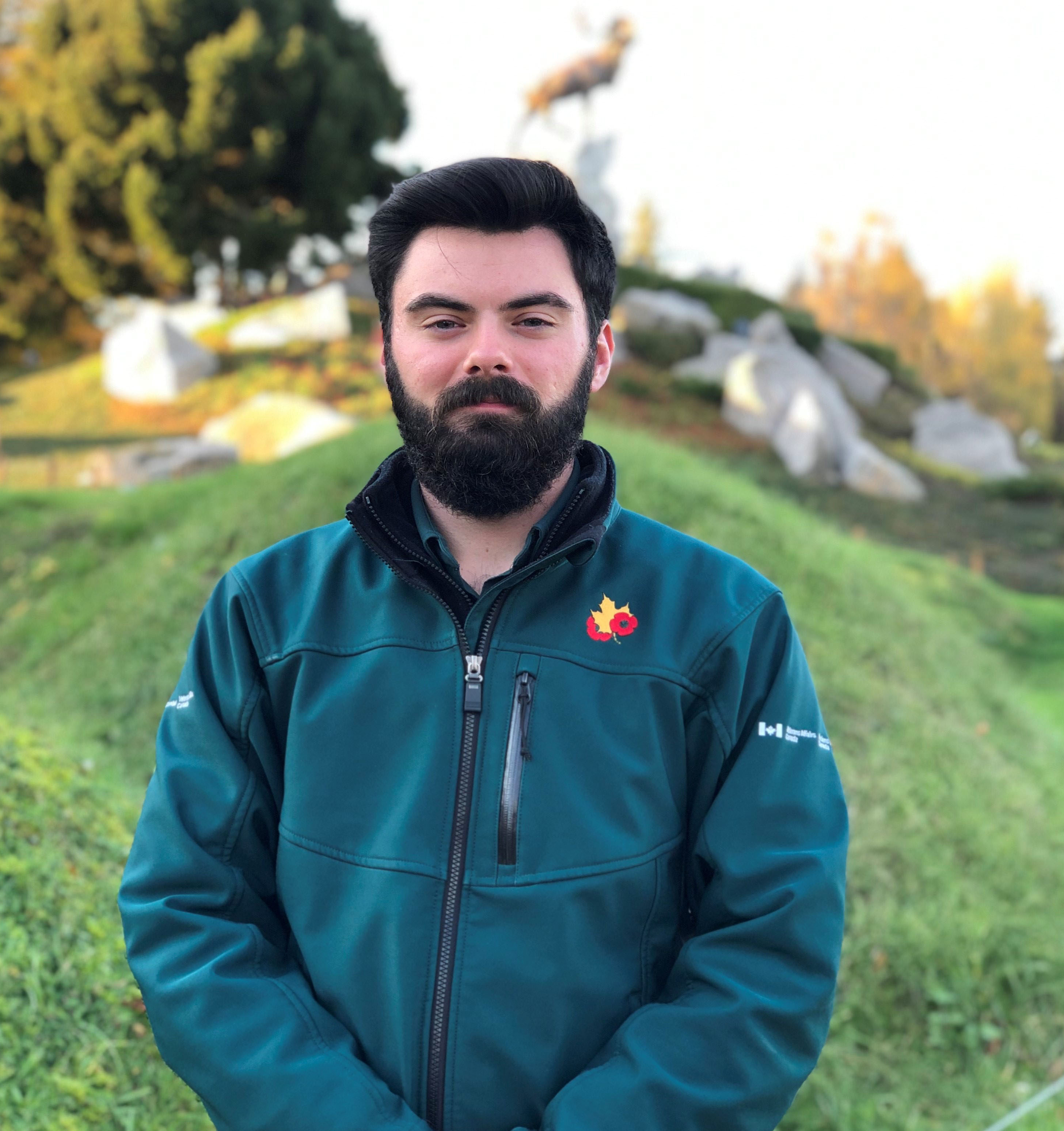Drew Carter
Drew Carter is a second year University of Ottawa history student. A native of Kentville, Nova Scotia, he is currently a student guide at the Beaumont-Hamel Newfoundland Memorial and the Canadian National Vimy Memorial in France.

For those who have not experienced war, relating to it can sometimes be difficult. The blaring noise, and the eerie calms; the sharp, lingering smells, and the nightmarish sights; the damp cold, and the blistering heat. For Drew Carter, however, understanding comes through a simple number: 19. The age he is now, and the age his great uncle, Private William Boone, was when killed while fighting in Italy, on 16 September, 1944.
“His story has had quite an impact on me,” said Carter. “William Boone and countless other young men like him laid down their lives so that we may be able to enjoy the freedom we have today. For their sacrifice, it is imperative we remember them.”
Private Boone, from Halifax, Nova Scotia, enlisted in the West Nova Scotia Regiment in 1943 before joining the Italian Campaign. He was one of twenty-three candidates who became part of the regiment’s West Nova Scout-Sniper Platoon. The platoon trained in various stealth and intelligence skills designed to aid their work behind enemy lines. Boone and his comrades saw action at Coriano Ridge during the Battle of Rimini. He was killed in action while trying to clear the city of Coriano during intense close quarters fighting.
“I have come to the realization that history truly begins at the individual level.”
“I have come to the realization that history begins at the individual level,” said Carter. “Each person has a unique story that sheds light on the larger picture. Their actions, whether great or small, form a collective history which we must preserve, share, and remember.”
Boone’s story is a small piece of Carter's family military history stretching back to the South African War of 1899-1902. His grandfather was a draftsman in the Royal Canadian Army Reserve, and his father was a logistics officer in the Royal Canadian Air Force. It's part of what inspires him as a student guide at the Beaumont-Hamel Newfoundland Memorial and the Canadian National Vimy Memorial in France.
“… As a proud Canadian, I cannot think of a more fulfilling job.”
“As a student of history, I cannot think of a more relevant job, and as a proud Canadian, I cannot think of a more fulfilling job,” he said. “I have the distinct honour of preserving the history of the Canadians who fought and fell in the First World War.”
The memorials are the only two National Historic Sites located outside of Canada. The first honours the Newfoundland Regiment at the site of the Battle of the Somme. The second memorializes the Canadian Expeditionary Force near where the Canadian Corps attacked at the Battle of Vimy Ridge.
“During my time in France, I have discovered that the names inscribed on both monuments are more than the names of soldiers killed in a war distant past. Rather, they represent individual men and their stories of sacrifice,” said Carter. “It is truly an honour to ensure that their stories remain present in the hearts and minds of our visitors.
Having such a lengthy military history connection is not something all Canadians share. But it’s not hard to imagine how much a 19-year-old gave up when he went to war and died so far from home. It’s a place where understanding can begin. It's also motivation to remember, as Carter does, that those are not just names on a monument, but rather real lives lived, and cut short.
Drew Carter is this week’s Face of Freedom, and example of a new generation of Canadians who continue to commemorate and honour the sacrifices of Canadian Veterans, both past and present.
- Date modified: